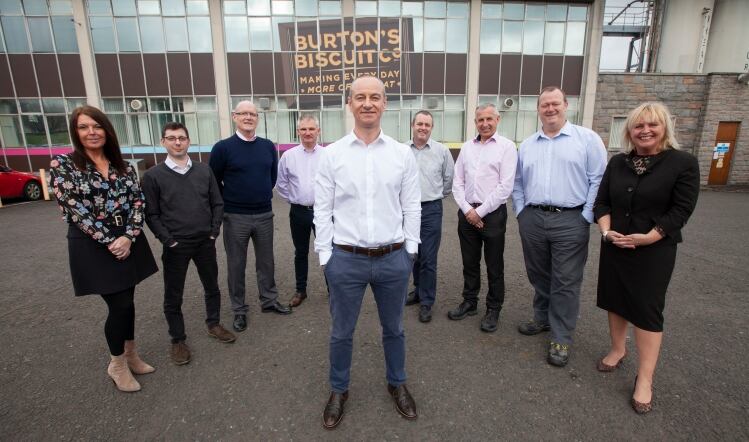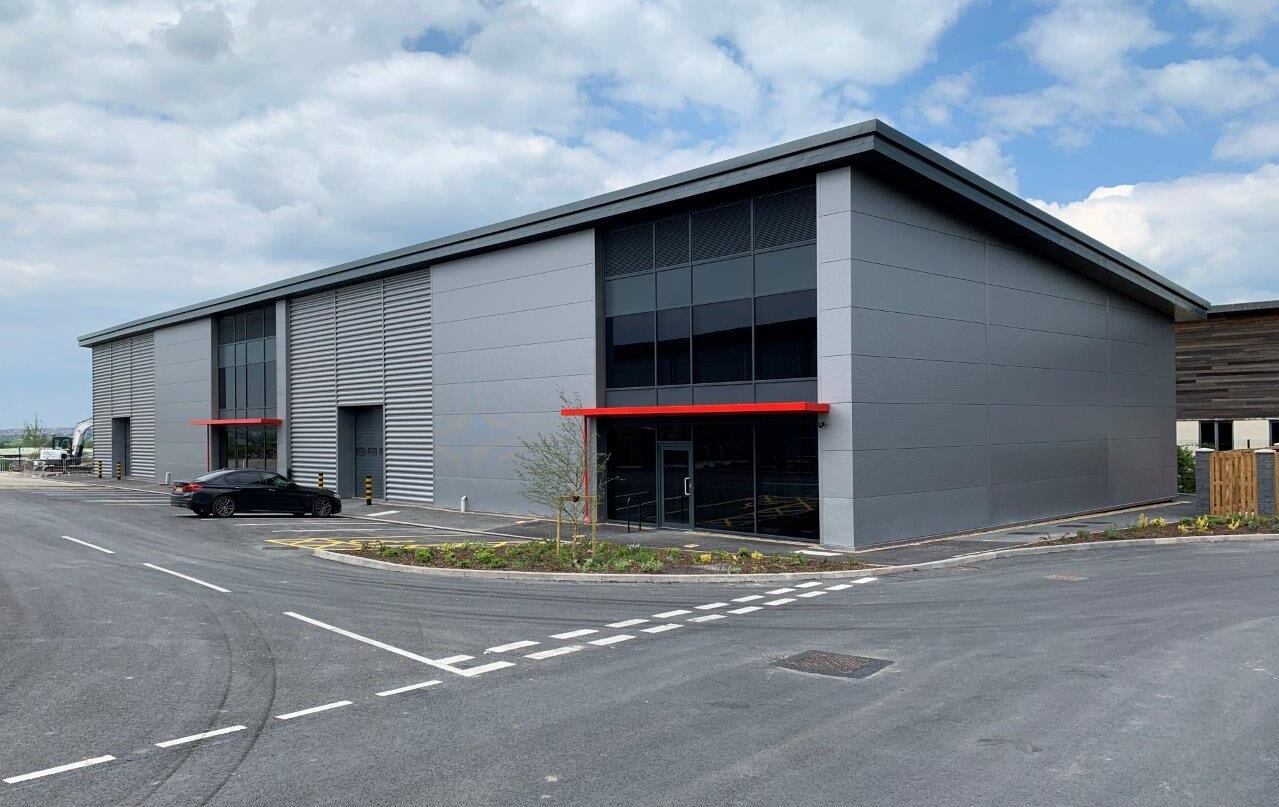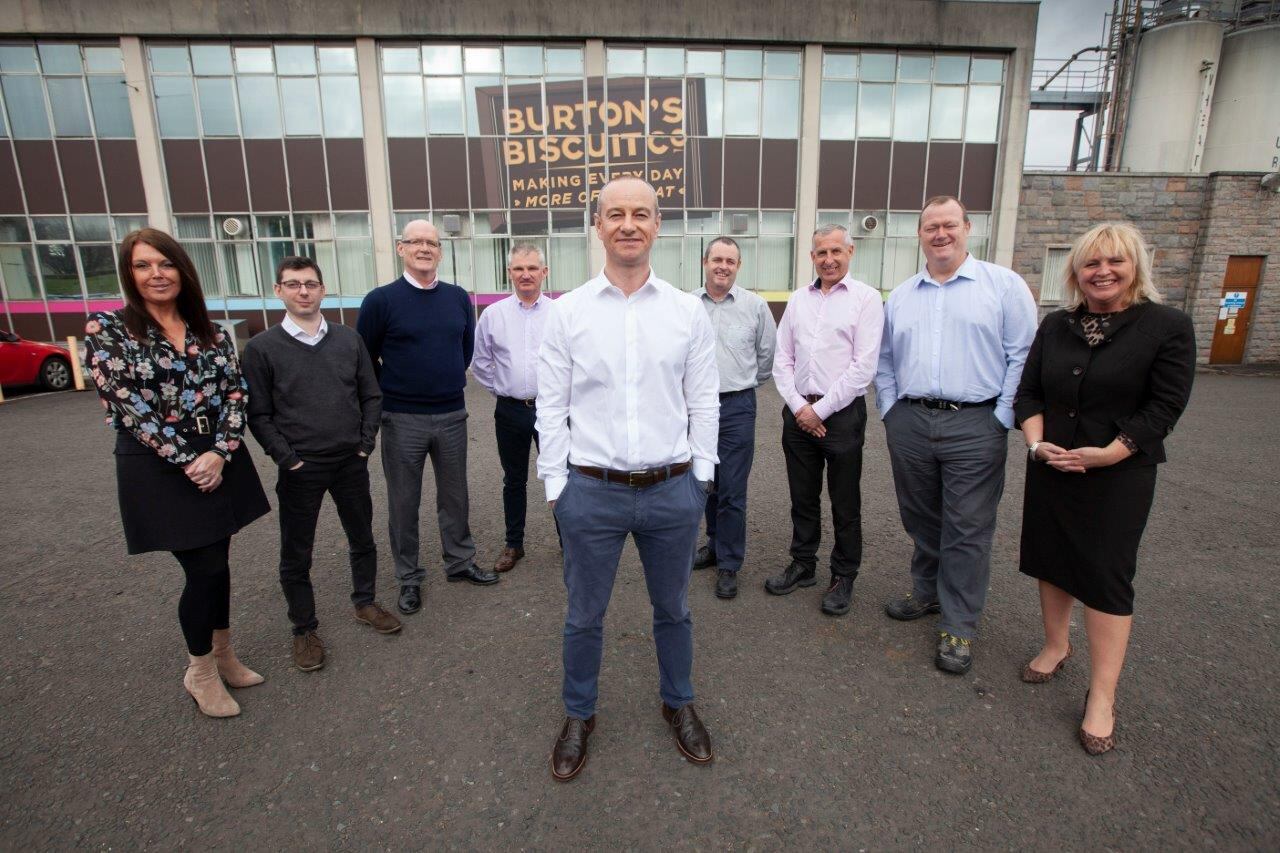Burton’s owns and manufactures some of the UK’s best-known and loved biscuit brands – including Jammie Dodgers, Maryland cookies and Wagon Wheels. It also produces own-label products, and a variety of branded products under licence. Here in Edinburgh, we are known especially for our shortbread, which accounts for a quarter of the factory output.
I took on the role as factory general manager four years ago, having worked in the dairy industry for 25 years – chiefly at Robert Wiseman Dairies, which was bought by Müller in 2009. Since then, we’ve been on a journey of manufacturing excellence and have made considerable progress.
Burton’s has its headquarters in St Albans, and also has manufacturing sites in Llantarnam, south Wales, and Blackpool. Distribution of all our products is controlled by DHL from a warehouse in Liverpool.
Edinburgh is a reasonably complex site, making 310 different stock-keeping units from 110 different recipes. We operate a three-shift pattern from Monday to Saturday, and our product split is 40% branded, 50% own-label – with the remaining 10% produced under licence.
Factory’s 60th anniversary
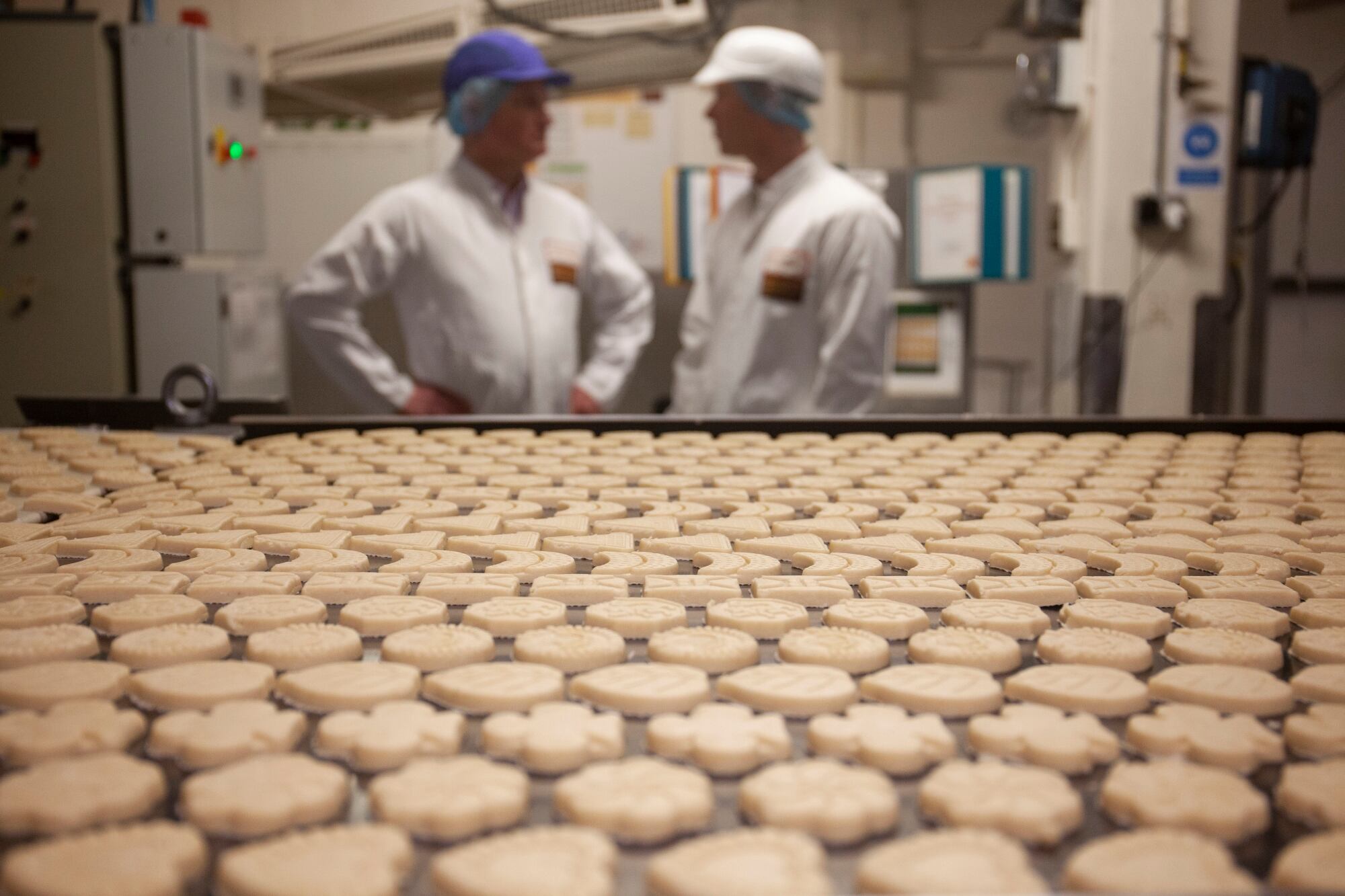
The factory turned 60 this year, and we are working hard to mark the anniversary. We have scheduled a different event for each month of the year. So far, we’ve had a retro day, where everyone dressed up in ’50s-style clothes, and a staff reunion disco. We also had a day where everything in the canteen was charged at 1959 prices.
The events have been great for staff morale, but true engagement relies on empowering them on the factory floor. In the last couple of years, we have begun to roll out a real-time operating system that measures and benchmarks performance.
There have been a couple of false starts, but we feel we’re on the right track now, having broken up the factory into ten manageable zones.
We started in the mixing room. To be honest, it was the last bastion of the old way of working – so we knew that if we could make progress there, the approach would work everywhere else. Before, an operator would go in, look at a recipe and press a button to start the machinery. Come the end of the shift, we had no idea whether it had been a good day or not, and whether we could have been more efficient.
Monitoring tools
By introducing a change management tool, we can now monitor the factory’s performance through each stage of a product being made, from the raw ingredients through to the packaging. If we want to do a quick audit on zone four, for example, we go and engage with the operator and ask them how the day has been. With the help of an iPad, they are able to show us instantly performance stats for the line they are running.
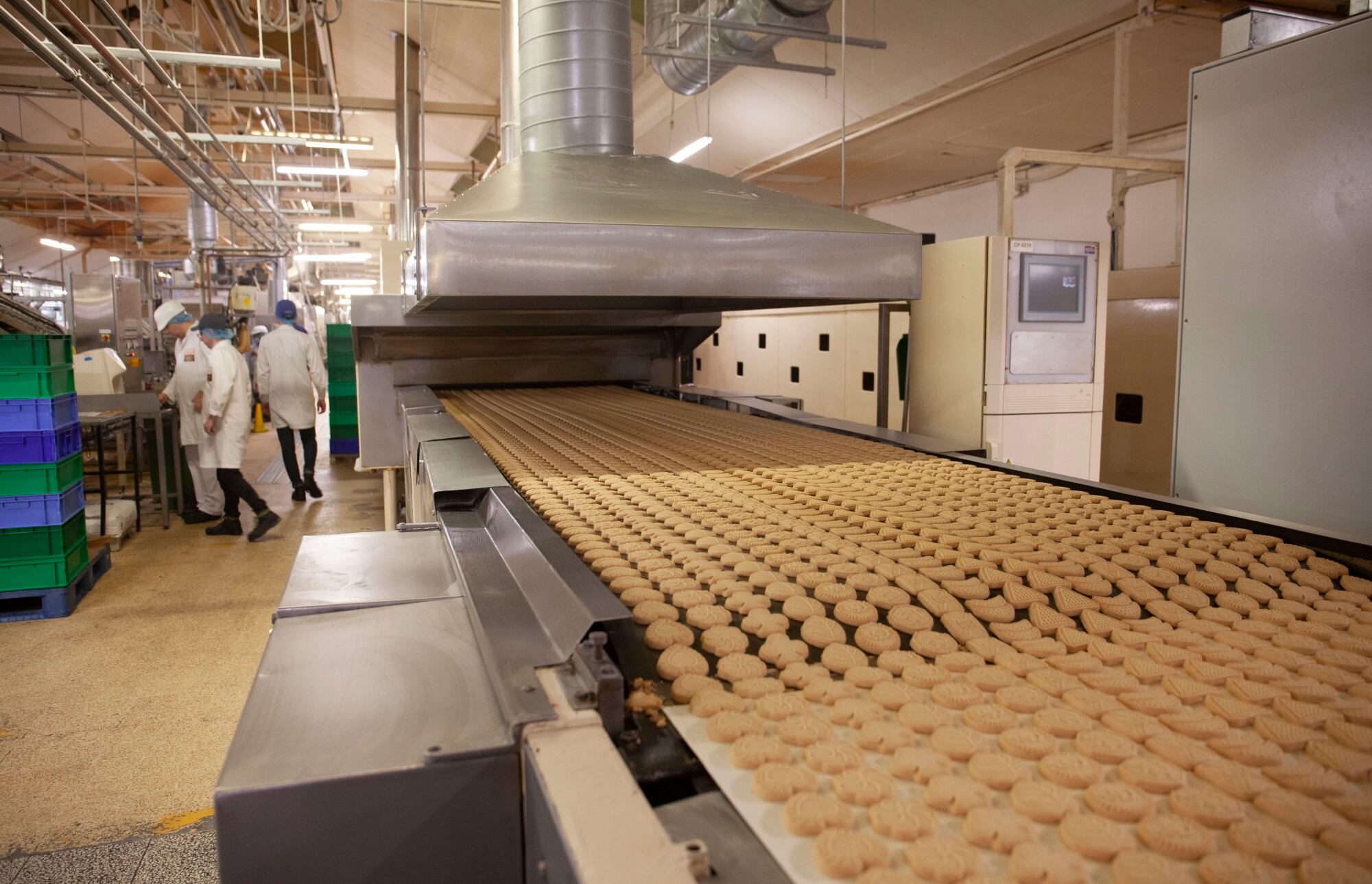
The feedback from staff is that they now understand how they influence the day-to-day performance of the factory, and it has helped them greatly. It’s that old cliché – we pay for the body and get the brain for free. But it’s sometimes hard to tap into that brain and get people to be passionate about what they are doing.
Our key-performance indicators show the approach is working. At 84.5%, our efficiency is the highest it has been this decade. Waste is under 4%, also the lowest level in the last 10 years, while our customer service is at 98.8%, which is really good for us and for the food industry in general.
We’ve also completely changed the culture in the engineering department. Before, it was entirely reactive and engineers would spend all of their time responding to equipment failures. Now, it’s much more proactive – and we have steadily implemented 1,600 different inspections across the plant, using a variety of techniques such as vibration, thermal imaging, and oil analysis.
Progress through adversity
So, we’re making progress in what hasn’t been an easy market. This plant suffered a volume dip in the past two years as a couple of our co-manufacturing customers brought production in-house. But this year, we anticipate a return to growth and, company-wide, we are forecast to increase by 5%, outperforming our major UK competitors.
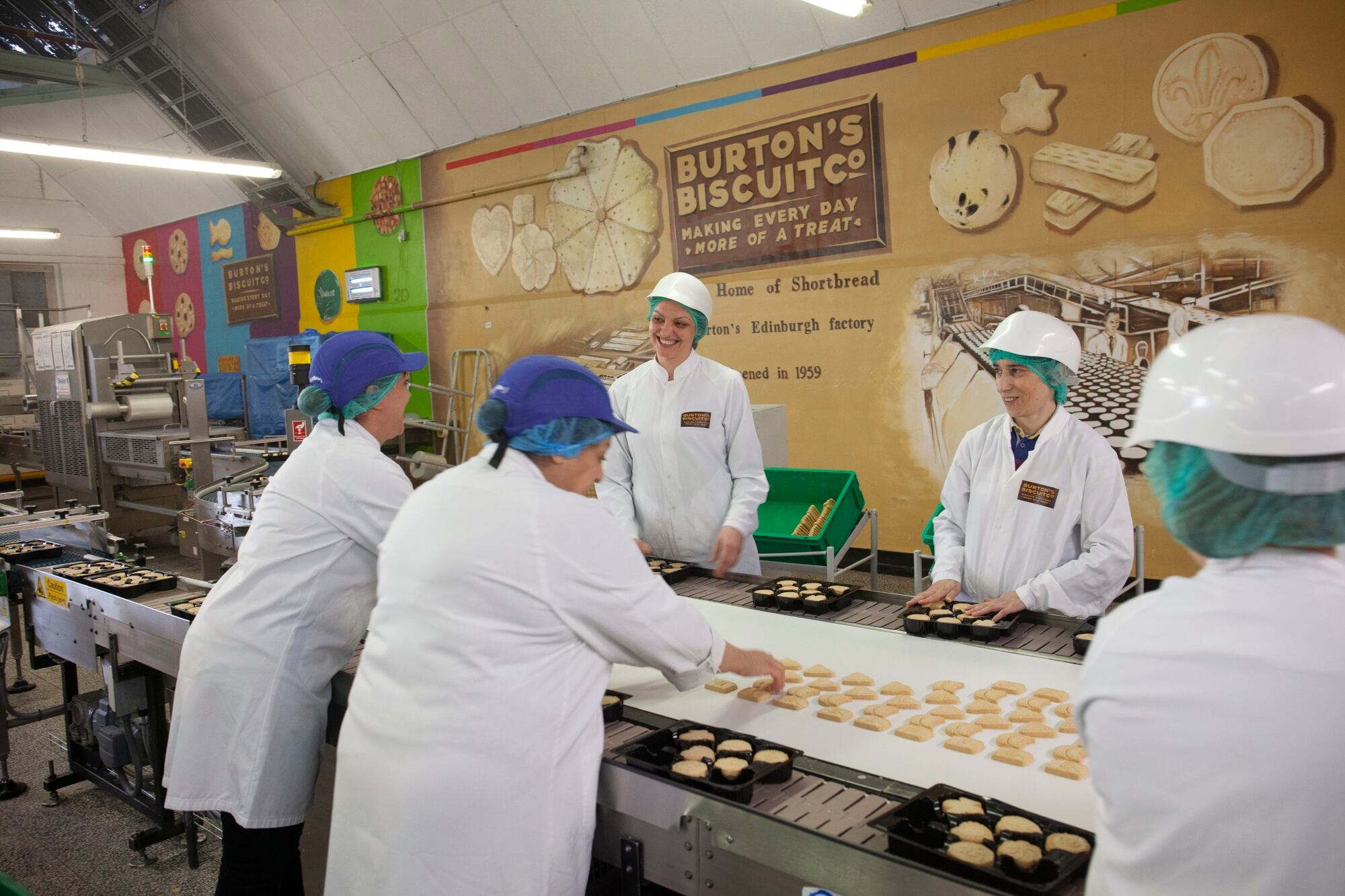
Like all established factories, investment is ongoing, and in this decade alone we’ve spent £30m on improvements. We’ve got exciting things planned around both our Maryland Mars brands in terms of growing plant capacity, so expect further news soon.
Investment in our staff is ongoing too. We’ve established a lean Six Sigma, green-belt, yellow-belt programme, and we’re targeting 30 people for that this year. We’ll also train around 200 people on safety-related activities. Further staff development will come in the form of an SVQ Level 2 in Business Improvement Techniques, which we’re aiming for 40 staff to complete.
Brexit continues to provide uncertainty, and commodity prices have been a rollercoaster, but overall, both the factory and business are doing well. Our strategy of continuous improvement is working, so we’ll carry along the same journey, taking our customers and workforce along with us.
Burton’s Biscuit Co
- Location: 34 Bankhead Place, Edinburgh. EH11 4HN
- Group turnover: £260m
- Factory size: 24,000m2
- Staff: 440 (Edinburgh)
- Products: Shortbread, digestives, chocolate-covered biscuits, savoury bagged snacks, bites.
- Customers: Multiple retailers and symbol groups. Mars and Mondelēz (under licence).
- Production lines: Nine.
- Factory output: 7.5m biscuits a day, 28,000t of product a year.
- Alan Goldie: “As I’m married with four kids, family time is important. I took up cycling 18 months ago – l love it.”

